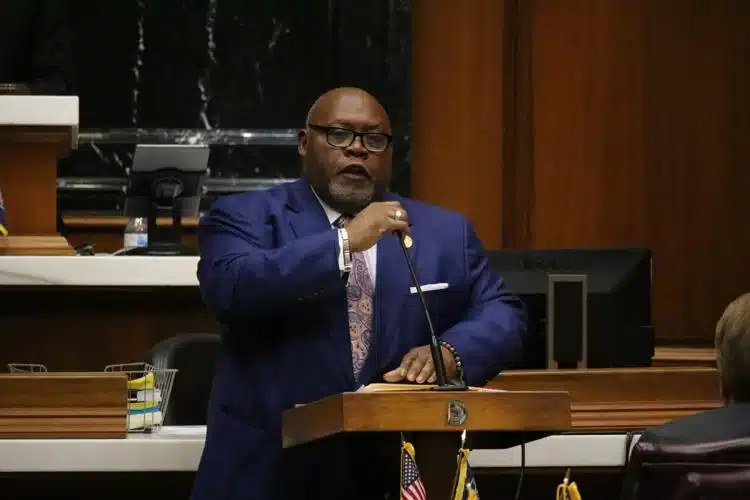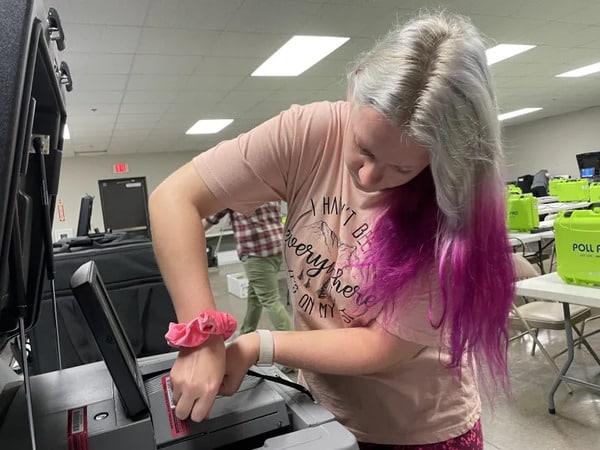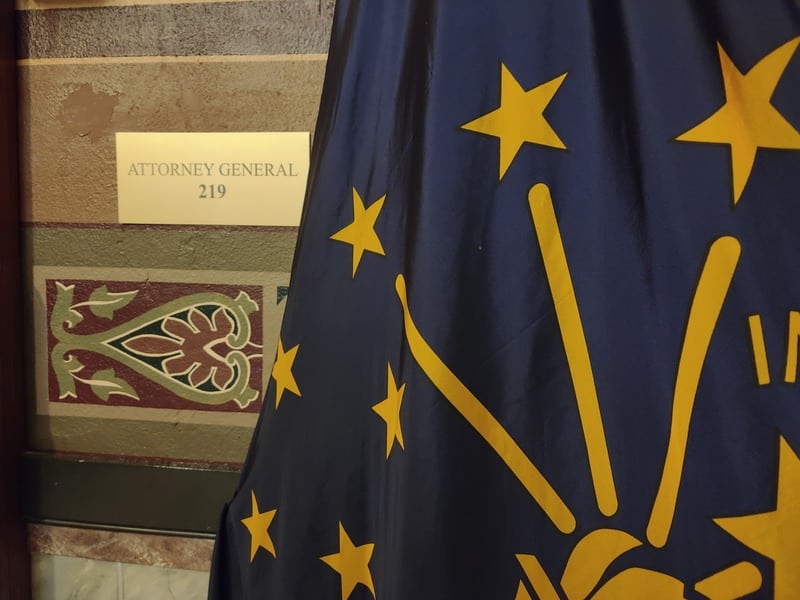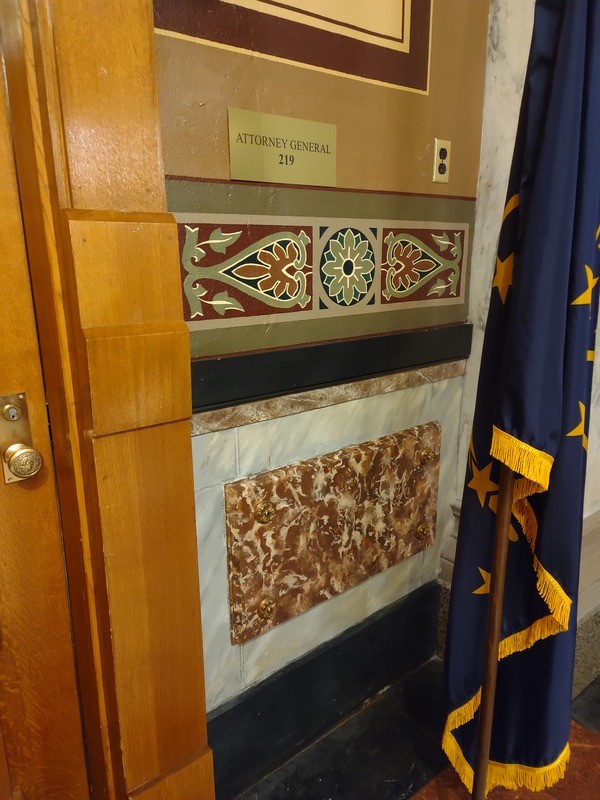Sen. Shelli Yoder, D-Bloomington, agreed that it felt like more Democratic pieces of legislation were passed this session, but one failed item Yoder still wanted to focus on was a repeal of the menstrual product tax.
“We aren’t asking for free products. We’re asking, don’t make us be taxed to engage the world, to leave our house. That is what that tax is. And we should be repealing it,” Yoder said. “It’s been 65 years that we have taxed women on going to school and going to work. Enough is enough.”
She also criticized lawmakers ending the session when they did. Indiana has two different kinds of sessions, long and short, alternating each year. The long session is when legislators write the state’s budget, which covers two years. In budget years, legislators have until April 29 to adjourn. This year the session ended a little past 2 a.m. on April 27, two days before the final adjourn deadlined.
Yoder said the session ended “unnecessarily” and that her colleagues had two more days to work on legislation relating to the state’s budget. Legislators could have left “at a decent hour,” then come back on Friday to do the “Hoosiers’ work.”
“At that point, robust debate, asking questions, making certain that all the i’s are dotted and the t’s are crossed—it’s all overcome by exhaustion. And at the end of the day, it’s Hoosiers who pay the price for that hasty, unnecessarily so, rush to sine die,” Yoder said.
Indiana’s isn’t the only statehouse to have a Democratic minority. Other states include Alabama, Arkansas, Florida, Georgia, Idaho, Iowa, Kansas, Kentucky, Louisiana, Mississippi, Missouri, Montana, North Dakota, Ohio, Oklahoma, South Carolina, South Dakota, Tennessee, Utah, West Virginia, Wisconsin, and Wyoming.
“Despite facing superminority status in both chambers, Statehouse Democrats worked across the aisle this session and delivered pragmatic solutions for Hoosier families,” said Indiana Democratic Party Chairman Mike Schmuhl in a press release. “From fighting food insecurity to supporting first responders, and addressing violent crime, Democrats helped lead on issues that will make a big difference for Indiana’s future.”
Here are the House Democratic bills that passed the General Assembly:
House Bill 1087 from Rep. Justin Moed, D-Indianapolis: Allows for released offenders to have transportation and housing set up for them prior to their release.
House Bill 1138 from Rep. Carolyn Jackson, D-Hammond: Ensures clean drinking water for preschools and daycares.
House Bill 1157 from Rep. Justin Moed, D-Indianapolis: Establishes a housing development program.
House Bill 1219 from Rep. Maureen Bauer, D-South Bend: Establishes a pilot program to monitor levels of certain toxic, manmade substances in the blood of Hoosier firefighters.
House Bill 1228 from Rep. Maureen Bauer, D-South Bend: Strengthens definitions and penalties around child solicitation.
House Bill 1252 from Rep. Ryan Hatfield, D-Evansville: Provides legal protections to certain government employees.
House Bill 1256 from Rep. Matt Pierce, D-Bloomington: Creates rules concerning public records.
House Bill 1321 from Rep. Victoria Garcia Wilburn, D-Fishers: Increases the mental health education that first responders receive during their required training.
House Bill 1365 from Rep. Mitch Gore, D-Indianapolis: Changes the definition of a machine gun to include devices that can be attached to pistols to make them fully automatic.
House Bill 1396 from Rep. Mike Andrade, D-Munster: Makes “stop the bleed” bleeding control kits more publicly available.
House Bill 1422 from Rep. Gregory Porter, D-Indianapolis: Creates a dementia care specialist program.
House Bill 1449 from Rep. Earl Harris Jr., D-East Chicago: Automatically enrolls eligible students in the 21st Century Scholars program.
House Bill 1483 from Rep. Vernon Smith, D-Gary: Strengthens school responses to bullying.
House Bill 1627 from Rep. Maureen Bauer, D-South Bend: Makes it easier for nonprofits to buy tax sale properties.
Here are the Senate Democratic bills that passed the General Assembly:
Senate Bill 15 from Sen. Lonnie Randolph, D-East Chicago: Increases the per diem paid to a commissioner of a housing authority.
Senate Bill 252 from Sen. Shelli Yoder, D-Bloomington: Allows a health-care provider to implant a long-acting reversible contraceptive on a Medicaid recipient’s first visit.
Senate Bill 334 from Sen. Shelli Yoder, D-Bloomington: Simplifies the application for SNAP benefits.
Senate Bill 415 from Sen. Rodney Pol, D-Chesterton: Requires parental notification for children arrested on school property or at school events.
Senate Bill 434 from Sen. Eddie Melton, D-Gary: Relates to economic development in Lake County, establishing a blighted property demolition fund.
Senate Bill 438 from Sen. Fady Qaddoura, D-Indianapolis: Requires a comprehensive review of existing home health services for children with complex medical needs.










